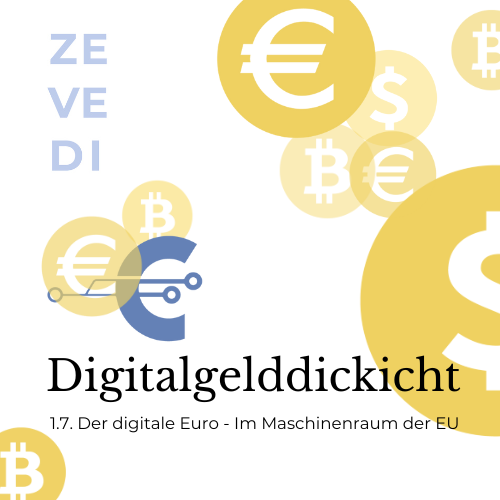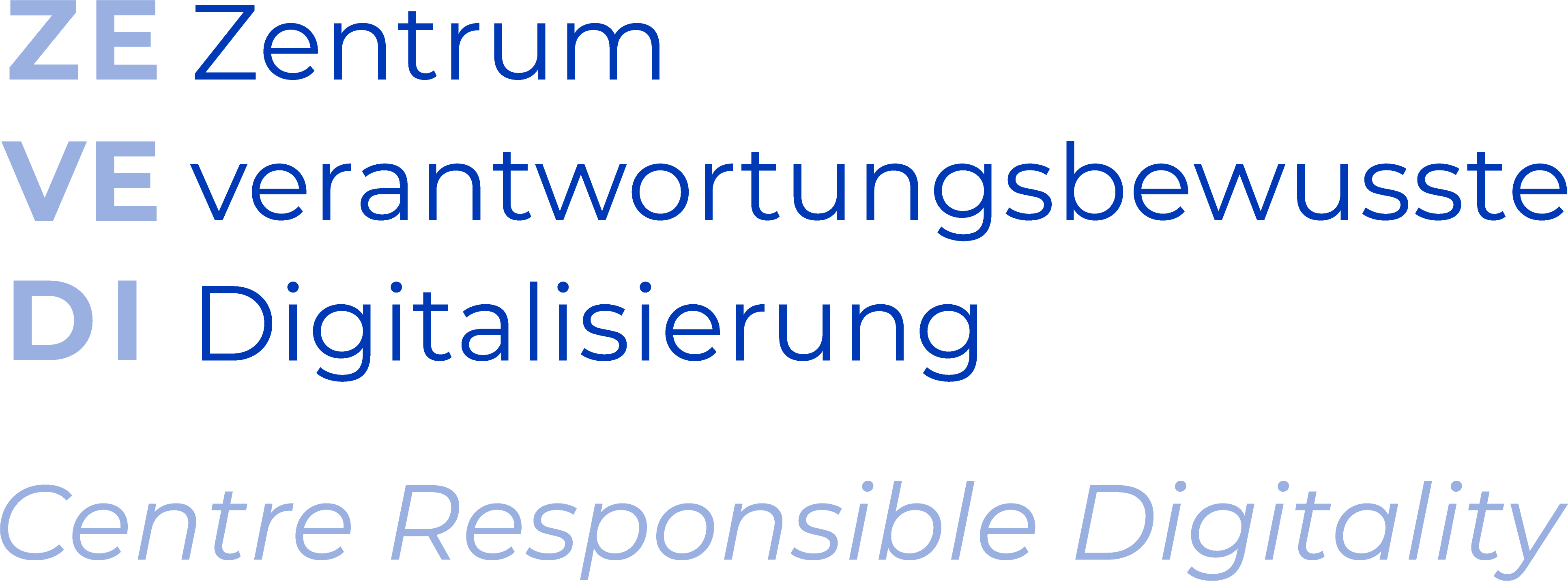
This episode of Digitalgelddickicht asks – also with the upcoming European elections in mind: How and when exactly will final decisions on the digital Euro be made in Brussels? What steps are still to be taken? Who has which opportunities to influence the outcome or act strategically? And what are the pitfalls of the EU process? What are the current positions in European Parliament and what is the significance of the European elections? What role do committees and the so-called rapporteurs and shadow rapporteurs play? We will address these questions in our conversations with EU parliamentarians.
It is, after all, the EU institutions which will decide whether such a central bank digital currency (CBDC) will be introduced at all. And if so, Brussels will define the framework within which a digital euro must be developed. That will take time still. We are in the early stages of the legislative process and the home stretch is not in sight for a long time. But that also means that a lot can still happen. Any meaningful discussion on the digital euro is currently still based on the European Commission’s Draft Proposal from June 2023. But the next step is for the European Parliament and the European Council to find a position each which is able to secure a majority’s support. This episode therefore takes a closer look at the most accessible of the EU’s engine rooms: the European Parliament and its committees
Guests
Damian Boeselager studied economics and philosophy, worked as a management consultant and co-founded Volt as a pan-European party together with two like-minded co-founders from Italy and France in 2017. As the lead candidate of Volt‘s German chapter, he was elected to the European Parliament in 2019 as the only Volt MEP at the time. He is a member of the Greens/EFA group and a member of the Committee on Constitutional Affairs.
Patrick Breyer is a lawyer, founding member and active politician of the Piratenpartei Germany since 2012. From 2012 to 2017, he was a member of the state parliament in Schleswig-Holstein and from 2012 to 2013 and from 2016 to 2017 he was also the leader of its Pirate Party parliamentary group. As the German Pirates’ lead candidate for the 2019 European elections, he has since been the only German member of his party in the European Parliament. He is a member of the Group of the Greens/EFA and a member of the Committee on Civil Liberties, Justice and Home Affairs.
Markus Ferber is an engineer, has been a member of the CSU Schwaben‘s Executive Board since 1990 and its Chairman from 2005 to 2023. He has been a member of the European Parliament since 1994. He is a member of the EPP Group, the European People’s Party, and has also been a member of the Committee on Economic and Monetary Affairs since 2009. Between 2014 and 2018, he served as its Vice-Chairman and since then as the EPP Group’s spokesperson on the committee. He has also been Chairman of the CSU-affiliated Hanns Seidel Foundation since 2020.
Henrike Hahn is a political scientist and has worked as a management consultant and research assistant in the Bavarian state parliament and the Bundestag. She has been an active member of Bündnis 90/Die Grünen Bayern since 2012, including as spokesperson for its working group on economics and finance and a member of the board. In 2019, she became a member of the European Parliament. There she is a full member of the Committee on Industry, Research and Energy and a substitute member of the Committee on Economic and Monetary Affairs. She is the lead negotiator and shadow rapporteur on the digital euro for her group, the Greens/EFA.
Joachim Schuster holds a doctorate in political science and worked in research, science management and political consulting until 2006. He was a member of the Bremen Parliament for the SPD since 1999 and was Bremen’s State Councillor for Labor, Youth and Social Affairs and later Health and Science from 2006 to 2012. He became a Member of the European Parliament in 2014. He is a member of the S&D Group and has been a member of the Committee on Economic and Monetary Affairs since 2019. On the Executive Committee of the German Social Democrats, he is responsible for cooperation with the SPD parliamentary group in the Bundestag.
Further Information
European Commission: Proposal for a Regulation of the European Parliament and European Council on the Establishment of a Digital Euro», 28 June 2023.
European Parliament Committee on Economy and Monetary Affairs (ECON): Draft Report on the EU Commission’s Proposal on the Establishment of a Digital Euro, 9 February 2024.
Recording of the European Parliament Committee on Economy and Monetary Affairs (ECON)’s morning Session, 14 February 2024.
European Parliament Committee on Civil Liberties, Justice and Home Affairs (LIBE): Opinion regarding the EU Commission’s Proposal on the Establishment of a Digital Euro , 20 February 2024.
European Parliament Committee on Economy and Monetary Affairs (ECON): Amendments 120-367 regarding the EU Commission’s Proposal on the Establishment of a Digital Euro, 21 February 2024.
European Parliament Committee on Economy and Monetary Affairs (ECON): Amendments 368 – 725 regarding the EU Commission’s Proposal on the Establishment of a Digital Euro, 21 February 2024.
ZEVEDI-Podcast Digitalgespräch, Episode 48 with Dominik Wendt: The EU’s AI Act: How it came about and how it regulates AI, 5 March 2024.
For the European election programs of the different parties and their positions on the digital euro, please consult the pages of the parties in question.
All Episodes of the Digitalgelddickicht»

